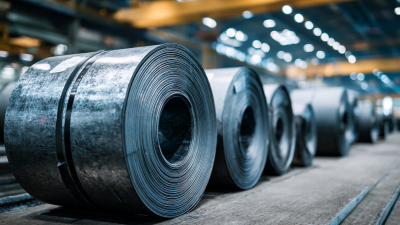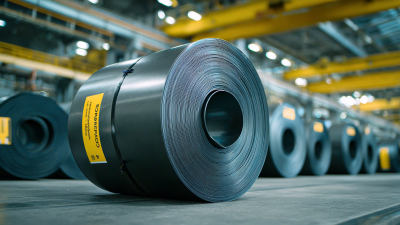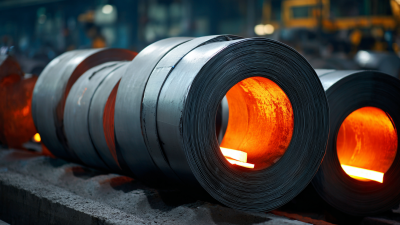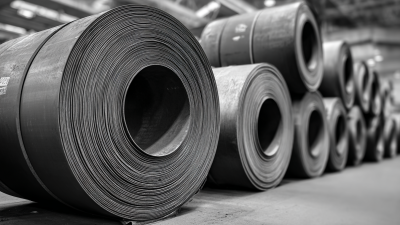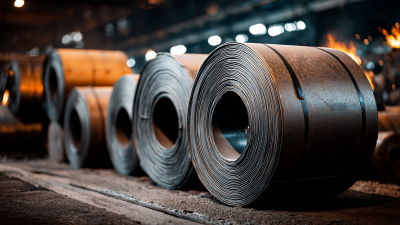In the dynamic landscape of modern manufacturing, the versatility of Carbon Steel Roll Coils has become increasingly apparent, revolutionizing various industrial applications. According to a report by Grand View Research, the global steel market is projected to reach $1.5 trillion by 2028, with carbon steel accounting for a significant portion of this growth due to its favorable properties, such as strength, ductility, and cost-effectiveness. Carbon Steel Roll Coils, in particular, are pivotal in industries ranging from automotive to construction, providing manufacturers with an ideal solution for high-performance components and structures. As demand continues to rise, understanding the multiple applications and advantages of Carbon Steel Roll Coil will be essential for manufacturers aiming to enhance their operational efficiency and product quality. This guide explores the myriad ways in which Carbon Steel Roll Coils can be utilized to meet the challenges of modern production processes.
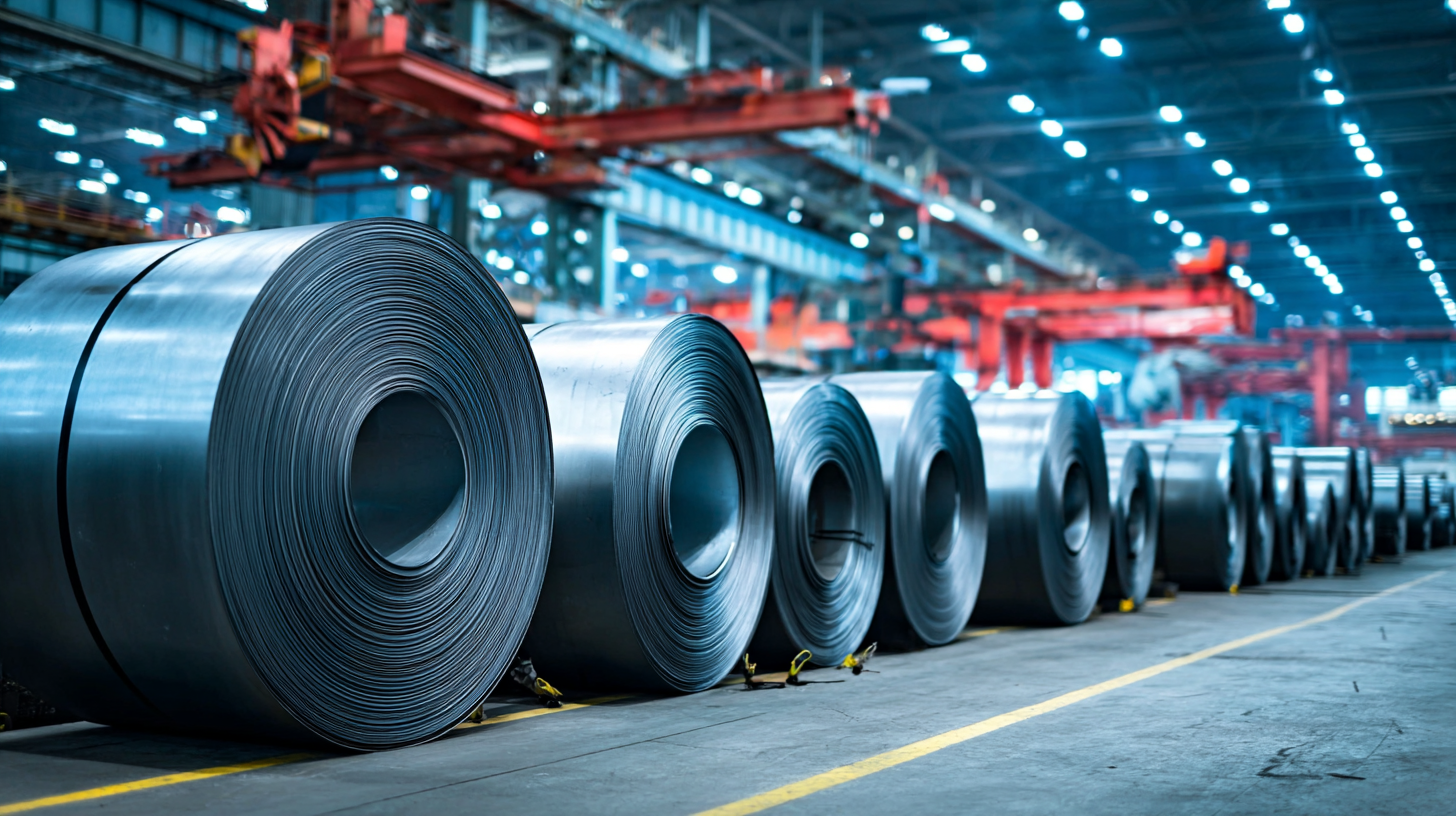
Carbon steel roll coils are integral components in a variety of manufacturing sectors due to their unique properties and versatility. Primarily made of iron and carbon, these coils come in different types, such as hot-rolled and cold-rolled. Hot-rolled coils are favored for their high strength and formability, making them suitable for structural applications, while cold-rolled variants offer a smoother finish and improved dimensional tolerances, ideal for precision manufacturing.
In addition to their physical properties, carbon steel roll coils are pivotal in addressing global market demands. With the latest price assessments from industry experts indicating significant regional trends, manufacturers are increasingly turning to carbon steel for its cost-effectiveness and adaptability. The broad spectrum of applications, from automotive to construction, highlights the necessity for understanding the specific types and characteristics of carbon steel roll coils, ensuring their effective use in modern manufacturing scenarios. As industries evolve, the insights into different types of carbon steel coils pave the way for innovation and sustainability in production processes.
Carbon steel roll coils have emerged as a cornerstone in modern manufacturing, largely due to their key properties that enhance versatility across various applications. The material's strength and durability make it ideal for fabricating parts that require resilience under stress, a critical factor in automotive and aerospace components. According to a report from the World Steel Association, carbon steel accounts for approximately 70% of the total steel production globally, underscoring its importance and applicability in diverse sectors.
In addition to strength, carbon steel possesses excellent machinability and weldability, making it suitable for intricate designs and structures. Recent advancements in manufacturing techniques, such as digital light processing, allow for more complex geometries, further expanding the possibilities for carbon steel applications. Notably, incorporating carbon steel with innovative robotic automation techniques enhances production efficiency, driving down costs while maintaining high standards of quality. As industries increasingly explore lightweight designs without compromising strength, the role of carbon steel roll coils in facilitating these innovations remains vital.
| Property | Description | Impact on Manufacturing |
|---|---|---|
| Tensile Strength | The maximum amount of tensile (stretching) stress that a material can withstand before failure. | Allows for thinner gauges in manufacturing without compromising durability. |
| Ductility | The ability of steel to deform under tensile stress. | Facilitates complex shapes and reduces failure rates during machining. |
| Hardness | The resistance of steel to deformation, indentation, or penetration. | Enhances wear resistance in applications with high friction. |
| Weldability | The capacity of steel to be welded into a particular assembly. | Enables the construction of complex welded structures with minimal defects. |
| Corrosion Resistance | The ability of steel to withstand damage by oxidization or other chemical reactions. | Increases service life of manufactured products in adverse environments. |
| Cost-Effectiveness | Low raw material costs compared to other metals. | Offers economic viability for large production runs in manufacturing. |
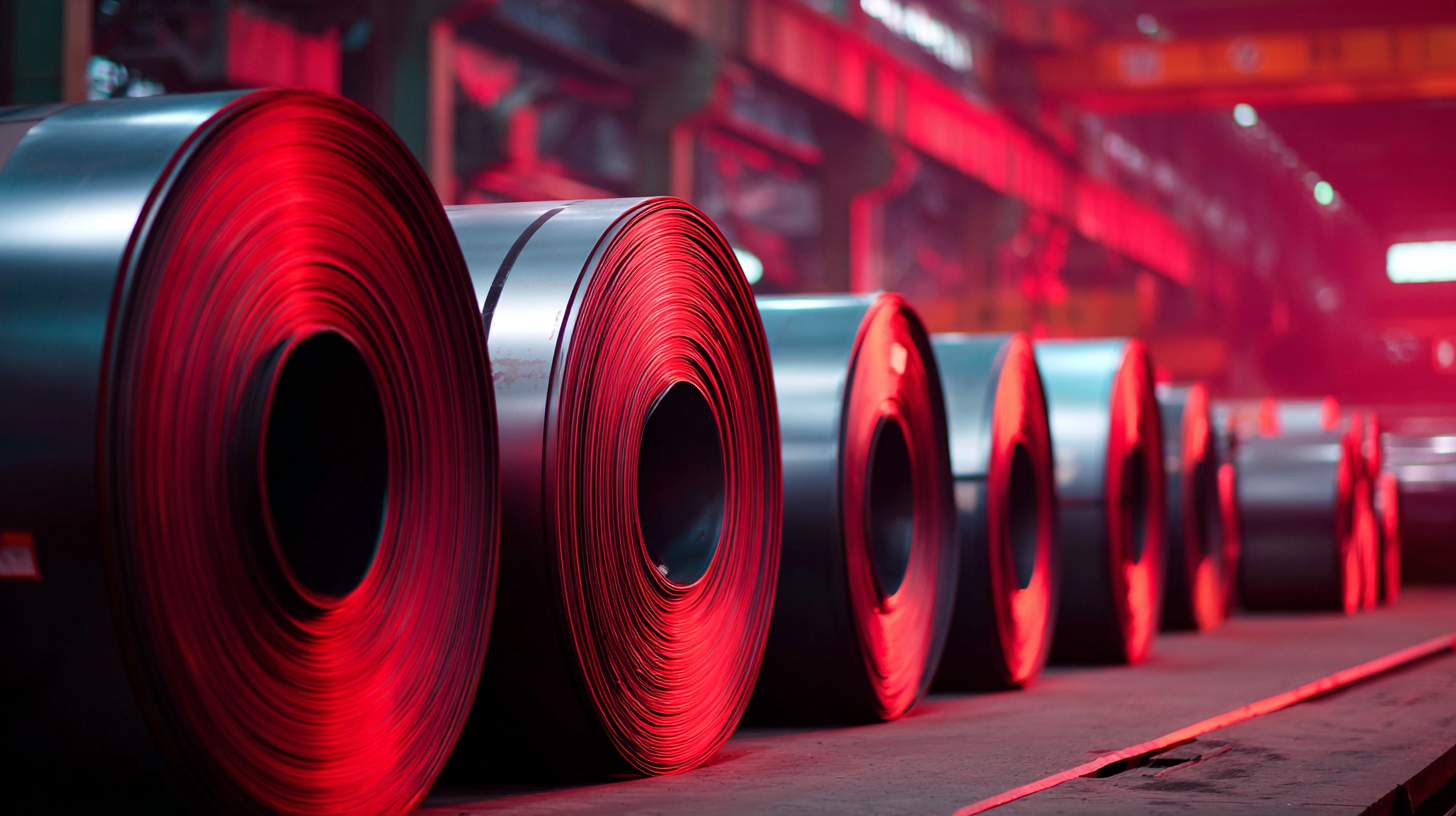 Carbon steel roll coils have emerged as a vital component in various industries due to their impressive strength, durability, and versatility. In sectors such as automotive manufacturing, the use of carbon steel is prevalent for producing body panels, frames, and other structural components. According to a recent report from the World Steel Association, automotive applications account for approximately 30% of global steel consumption, showcasing the significance of carbon steel in this field. Additionally, the construction industry leverages carbon steel for reinforcing bars and structural frames, essential for ensuring the integrity and safety of buildings.
Carbon steel roll coils have emerged as a vital component in various industries due to their impressive strength, durability, and versatility. In sectors such as automotive manufacturing, the use of carbon steel is prevalent for producing body panels, frames, and other structural components. According to a recent report from the World Steel Association, automotive applications account for approximately 30% of global steel consumption, showcasing the significance of carbon steel in this field. Additionally, the construction industry leverages carbon steel for reinforcing bars and structural frames, essential for ensuring the integrity and safety of buildings.
In the appliance industry, carbon steel roll coils are frequently utilized to manufacture everything from kitchen appliances to HVAC systems. The reliability and cost-effectiveness of carbon steel make it an ideal choice, allowing manufacturers to produce high-quality products that meet consumer demands. The annual global demand for carbon steel in appliances is projected to reach 5.2 million tons by 2025, according to a report from Smithers Pira. This growing trend highlights the material's key role in meeting manufacturing goals across sectors.
Tip: When selecting carbon steel roll coils for your manufacturing needs, consider the specific grade and thickness that aligns with your end-use requirements. Proper gauge selection can enhance formability and reduce waste during fabrication processes. Always consult with a supplier to ensure compatibility with your production methods.
Carbon steel is a fundamental material in modern manufacturing, revealing significant advantages when compared to other steel types such as stainless steel and high-speed tool steel. The U.S. carbon steel market was valued at $105.8 billion in 2022, with a projected compound annual growth rate (CAGR) of 4.0% through 2030. This growth is primarily driven by robust demand in construction and infrastructure development, where carbon steel's unique properties—such as strength, toughness, and cost-effectiveness—make it the preferred choice over alternatives.
In contrast, while stainless steel offers superior corrosion resistance and aesthetic appeal, its market share is limited by higher production costs. The stainless steel market is projected to grow as well, but with a CAGR that may not match the demand growth seen in carbon steel. High-speed tool steel, though essential for specific applications in manufacturing, is often more expensive and therefore not as widely utilized in structural applications. The U.S. metal forging market alone reached a value of $7.75 billion in 2022, emphasizing a broader industry propensity for carbon steel due to its accessibility and versatility, reinforcing its importance in various sectors beyond just manufacturing.
The future of carbon steel roll coil technology is set to be shaped by advancements in manufacturing processes and innovation in material science. As industries continue to demand higher performance and versatility, manufacturers are investing in techniques such as precision roll forming and advanced coating technologies. These methods not only enhance the mechanical properties of carbon steel but also significantly increase its corrosion resistance, allowing for longer product life and reduced maintenance costs. The integration of these technologies will enable carbon steel roll coils to meet the stringent requirements for various applications, from automotive components to structural materials.
Moreover, sustainability is a key trend influencing the usage of carbon steel roll coils. The push towards reducing carbon footprints has led to the development of more eco-friendly production methods, including recycling and energy-efficient processing. Future innovations may focus on creating hybrid materials that combine carbon steel with other metals to enhance strength while minimizing weight. This evolution in material composition is likely to open up new applications in industries such as renewable energy and construction, where efficiency and durability are paramount. As these trends unfold, carbon steel roll coils will undoubtedly play a critical role in the modernization of manufacturing practices.

